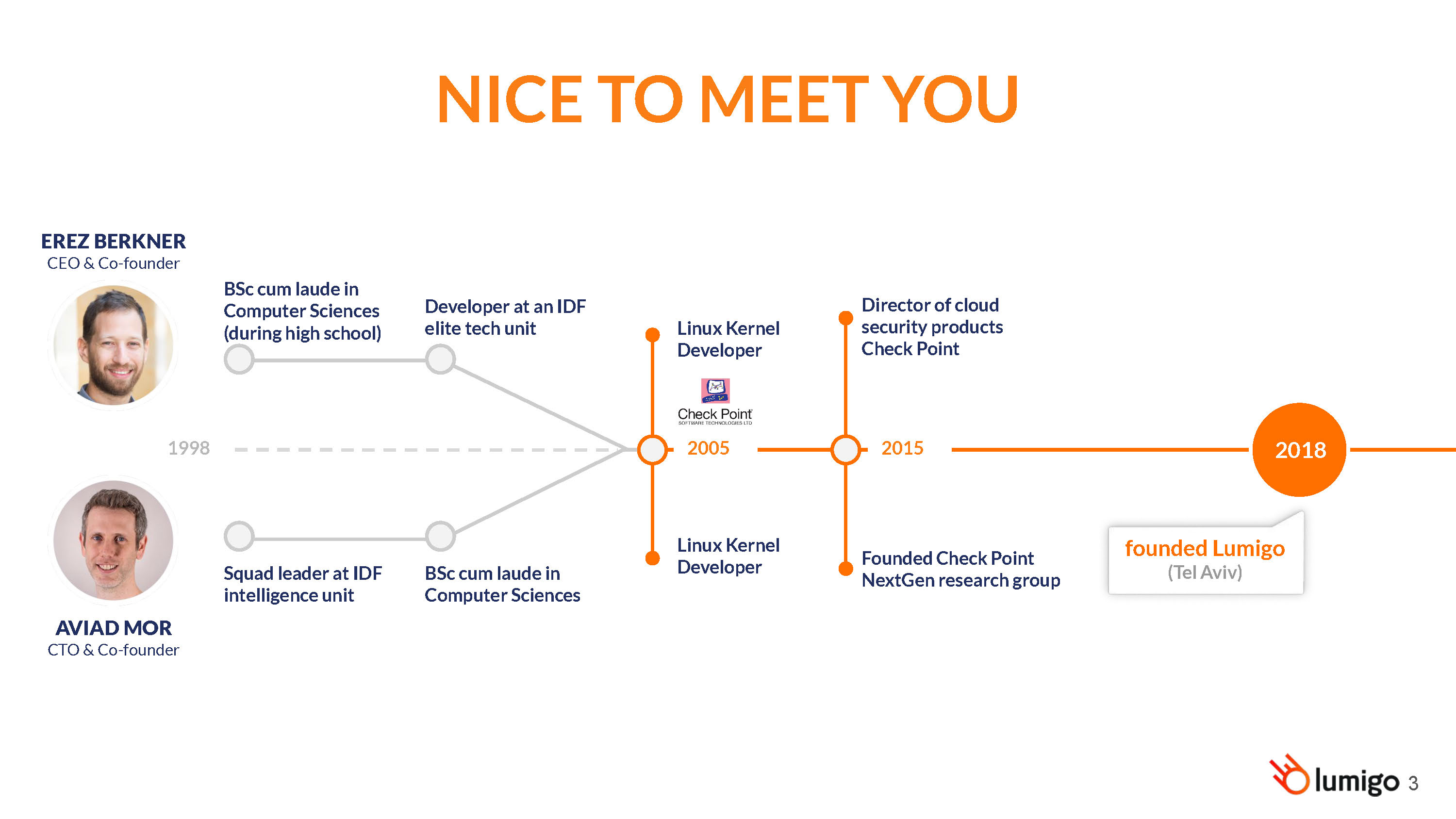In Novembar last year, Frederic wrote about Lumigo‘s $29 million Series A round led by Redline Capital. The company makes a cloud-native application monitoring and debugging platform and has raised a total of $38 million since its launch in 2019.
In the most recent installment of my Pitch Deck Teardown series, I am beyond excited to share the deck it used when it raised its Series A last year. We’ll take a look at the full deck and break down the three things I love, three things that could be improved and discuss a few other highlights that founders can learn from when they are raising a Series A in the current fundraising climate.
We’re looking for unique pitch decks to tear down, so if you want to submit your own, here’s how you can do that.
Slides in this deck
- 1 — Cover slide
- 2 — “In a Nutshell”: summary slide covering the market, problem and solution
- 3 — “Nice to meet you”: team slide
- 4 — “Cloud Native Evolution”: market trends slide
- 5 — “The Year of Cloud Native”: market evolution slide
- 6 — Problem slide
- 7 — Solution slide: solution overview
- 8 — “Lumigo’s Solution”: solution slide (tracing)
- 9 — “Lumigo’s Solution”: solution slide (managed services)
- 10 — “Monitoring and Debugging in the same tool”: product slide
- 11 — “Customer Case Study”: use case slide
- 12 — “Case Study”: typical customer growth overview
- 13 — “Case Study”: how the problem is currently solved
- 14 — “Case Study”: how the problem is solved with Lumigo
- 15 — “Cloud Native Observability market”: market analysis (redacted)
- 16 — “Forecast”: financial forecast interstitial slide
- 17 — “2021 EoY Target”: financial projection graph slide (redacted)
- 18 — “GTM”: go to market slide
- 19 — “Summary & Ask”: summary of the presentation and the ask and use of proceeds slide
- 20 — “Thank you”: final closing slide
Three things to love
Lumigo was gracious enough to let me share its full 20-slide deck, with only two notable redactions: The team told me that its market analysis (slide 15) and financial projections (slide 17) were commercially sensitive. That makes perfect sense. The rest of the deck is a masterclass in storytelling, with a slew of really elegant little details for how to tell the story of a very complex company in a highly competitive market. I loved how Lumigo made the story come to life by using a case study to drive the narrative (slides 11 to 14). Let’s dive in and look at some specific slides:
One of the best team slides I’ve seen

[Slide 3] The story of Lumigo’s founders meeting and working together is very well done. Image Credits: Lumigo
from https://ift.tt/fuJGo5c
via Technews







No comments:
Post a Comment